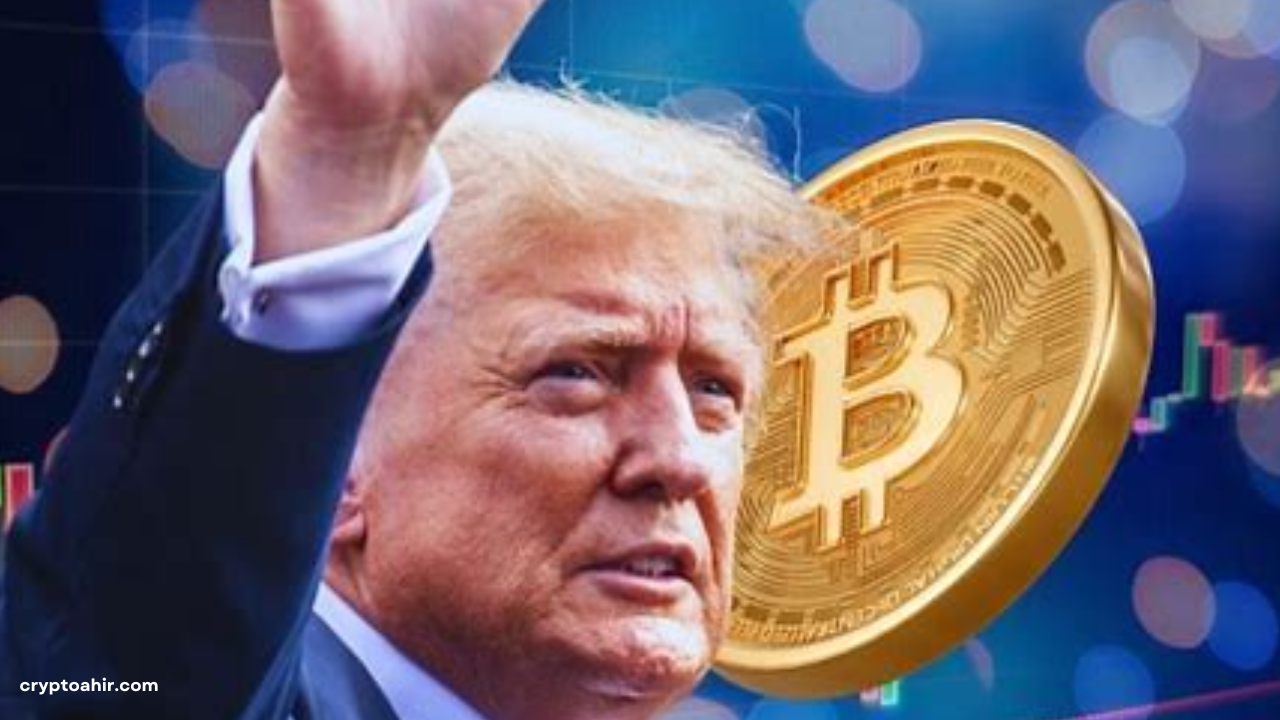As some crypto companies think about seeking for banking licenses and some banks think about issuing their own digital assets, the Trump 2.0 age is creating new crossings in the financial sector.
As the new government relaxes regulations on both cryptocurrency businesses and established financial behemoths, the convergence is gaining speed.
According to a Wall Street Journal story, cryptocurrency upstarts Circle, BitGo, Coinbase Global (COIN), and Paxos are all thinking about or intending to apply for a US bank license in some capacity. This is the most recent proof of this mashup.
A Coinbase representative told Yahoo Finance, “Coinbase is actively considering this but has not made any formal decisions yet.”

While Congress considers new rules controlling such digital currencies, Bank of America (BAC) has stated that it is willing to establishing its own stablecoin. The US dollar is the most common asset to which stablecoins are tied.
“If they make that legal, we will go into that business,” Brian Moynihan of Bank of America stated in February. Bank of America is the second-biggest lender in the country.
Standard Chartered, PayPal (PYPL), and Stripe are among the other conventional banks and payment companies who are testing or thinking about getting more involved with stablecoins.
The Financial Times reports that the massive money management firm Fidelity Investments has also started testing its own stablecoin.
BitGo CEO Mike Belshe told Yahoo Finance that “some of the traditional banks are going to embrace and start offering crypto-related products directly.” “We’re also going to see crypto moving more towards traditional finance as well, which is crypto companies like BitGo offering more traditional services.”
Last week, the Federal Reserve removed instructions warning bankers against dabbling in cryptocurrency, marking the latest step the Trump administration has taken to remove barriers between the banking and cryptocurrency industries.
One outcome is that lenders are no longer need to obtain the Fed’s prior clearance before engaging in crypto-related operations.
Given that the legislation under consideration by legislators would probably require stablecoin issuers to have charters or licenses, the stablecoin regulatory framework that the Trump administration wants Congress to approve this year may be encouraging some cryptocurrency companies to apply for banking licenses.
In a post on X last week, Circle’s chief strategy officer, Dante Disparte, stated that the company has no plans to become a bank or any other type of insured depository institution. “
We do intend to comply with a future U.S. regulatory framework for payment stablecoins, which may require registering for a federal or state trust charter or other nonbank license.”
Additionally, bank charters may provide cryptocurrency companies with a means of gaining credibility and mitigating the risk if D.C. delays legislation.
“A bank charter is a privilege,” Daniel Hartman, a former legal counsel at the Federal Reserve Bank of Boston and a lawyer specializing in the financial sector for the law firm Nutter, told Yahoo Finance.
“Getting welcomed into that system adds an immense amount of credibility,” Hartman stated.
As a niche endeavor, several banks have sought to provide additional financial services focused at cryptocurrency in recent years.

As bitcoin and other digital assets started to gain traction during the epidemic, the move temporarily proved profitable.
After the failure of cryptocurrency exchange FTX in 2022 and the bankruptcy of crypto-friendly lenders Silvergate and Signature Bank in 2023, the move was ultimately halted.
Stripe CEO Patrick Collison wrote last Friday on X, “We’ve wanted to build this product for around a decade, and it’s now happening.”
The fintech company is now exploring stablecoin payment tools for businesses outside of the US, UK, and EU after acquiring stablecoin platform Bridge in February.
Last Monday, PayPal, the biggest fintech company to release a stablecoin to far, revealed intentions to provide customers who hold its stablecoin (PYUSD) on its payments app Venmo a 3.7% annual dividend.
Fees for anyone wishing to purchase or sell the asset on Coinbase’s platform have also just been eliminated.
A number of institutions, including Standard Chartered, Santander, and Deutsche Bank, are offering advice to Circle, the company that issues the second-largest stablecoin in the world (USDC), on how to create a new cross-border payments network that would compete with SWIFT.
Additionally, World Liberty Financial, a new cryptocurrency company supported by President Trump and his sons, said last month that it will work with BitGo to issue its own stablecoin that is tethered to the US dollar.
BitGo CEO Belshe stated, “If you asked anybody six months ago, nobody really would have thought we would be getting here, but now we’re here,” referring to the rapid blending of Wall Street and cryptocurrency after Trump’s election victory.






